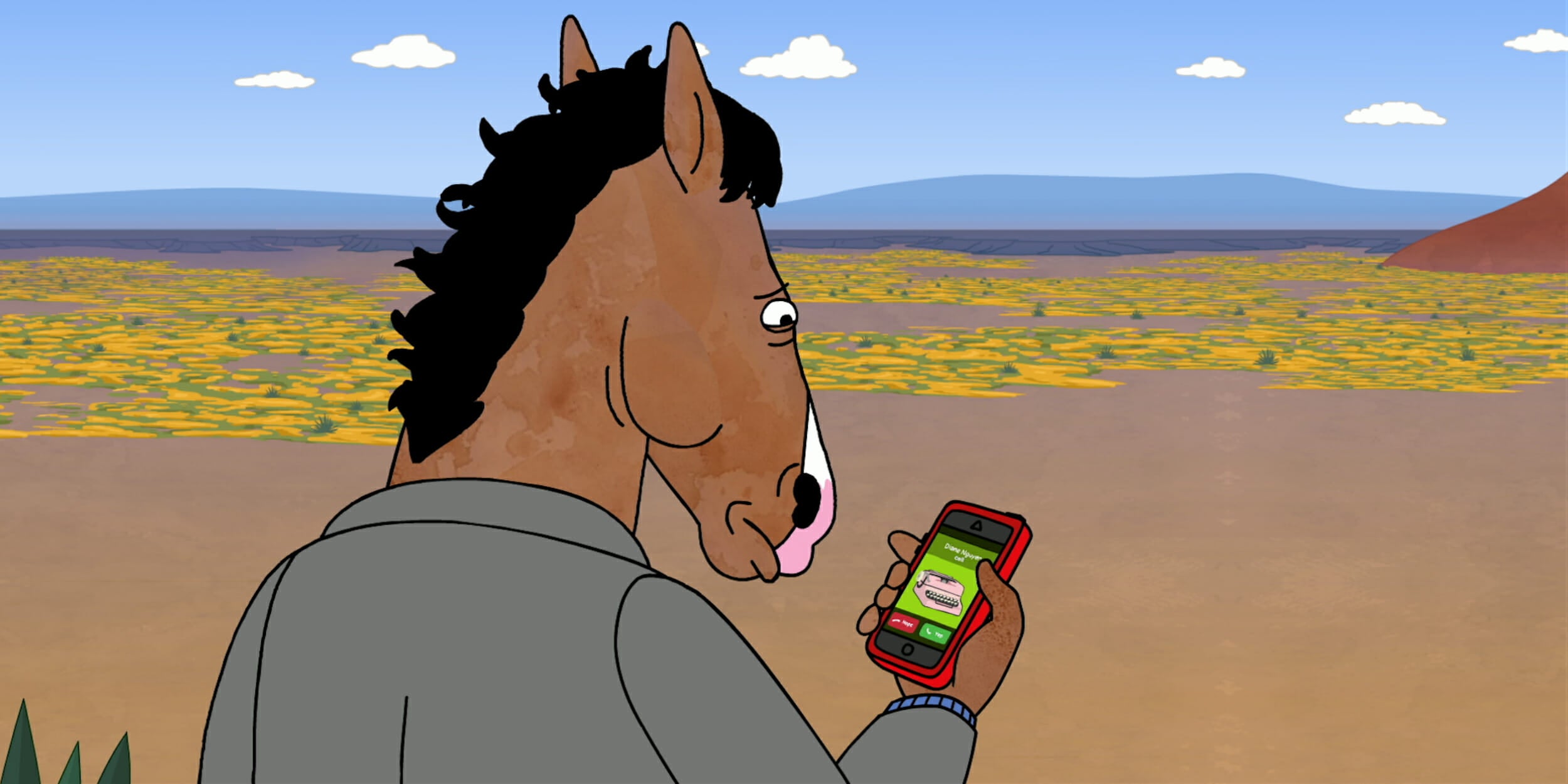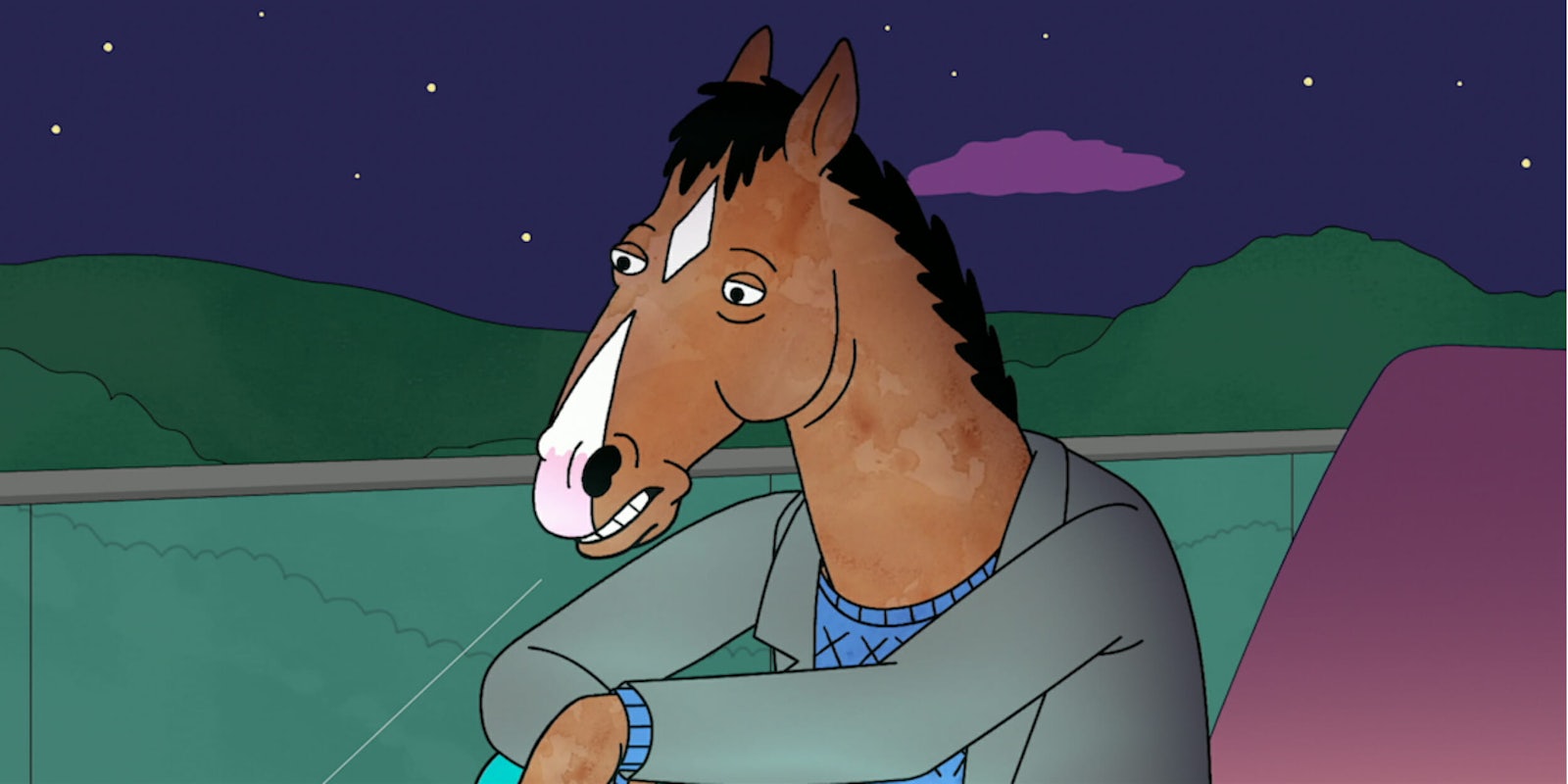The promotional materials for BoJack Horseman season 4 ask, “Where’s BoJack?” In the first episode, he’s nowhere to be found, but one of his favorite subjects is: the past. We rejoin the Netflix original series in 1992, when his star-making sitcom Horsin’ Around apparently experimented with Vincent D’Onofrio as the lead.
This is the pop-culture-laced world of BoJack Horseman, the id of show business cleaved open and heaved out of over three seasons in which BoJack (voice by Will Arnett) attempts to find life and fight demons after the flicker of fame has died out. After a dark season 3 finale, BoJack is doing some soul-searching in the desert, as a cover of America’s “A Horse With No Name” bluntly illustrates.
But for season 4 to work, BoJack has to not be a garbage horse-person—he needs to grow somehow. Enter BoJack’s long-lost daughter Hollyhock (Aparna Nancherla), who breaks down some of his defensiveness and helps him reconnect with his estranged mother, Beatrice (Wendie Malick). This is the heart of the season, the emotional core the series had to embrace, and it’s (mostly) artfully done, especially a later episode that explores Beatrice’s early life.

While season 4 continues the previous season’s pivot toward supporting characters and telling more emotional stories, a second storyline adds another layer. Ever-oblivious pup Mr. Peanutbutter (Paul F. Tompkins) challenges California Gov. Woodchuck Coodchuck Berkowitz to a literal race for governor, and his campaign manager Katrina plots devious ways to manipulate public opinion (and Mr. Peanutbutter). It nods to the ridiculousness of the 2016 election, its chest-puffing and truth-splitting, without mirroring it too closely.
But in BoJack’s world it seems less jarring, the spectacle of it all in line with the cartoon reality. Mr. Peanutbutter speaks of being a candidate who represents the regular people (the show’s Twitter account was turned into a faux platform for his campaign), and when wife Diane (Alison Brie) questions him about being a pro-fracking candidate, Peanutbutter counters: “Nothing anyone says during a campaign matters.”
Twitter is exhausting! I have to come up with a new thing every time? The thing today is still #PB4Gov
— BoJack Horseman (@BoJackHorseman) September 5, 2017
There are other political threads: Diane works at a woman-focused new media company that banks on clickbait, and finds her voice when she starts carrying a gun: She now feels as safe as a man. But the punchline comes swiftly. BoJack Horseman’s ties to show business are less clear this time around. It feels like the show is reacting more to the world over the last year. It was wise to back off BoJack’s destructive depression, a thread for much of the series. He seems to be learning something, prompted by people who actually love and “get” him.
Where’s BoJack? By the end of the series, in a very different place than season 3.
https://www.youtube.com/watch?v=Bf12qwPWDVI


